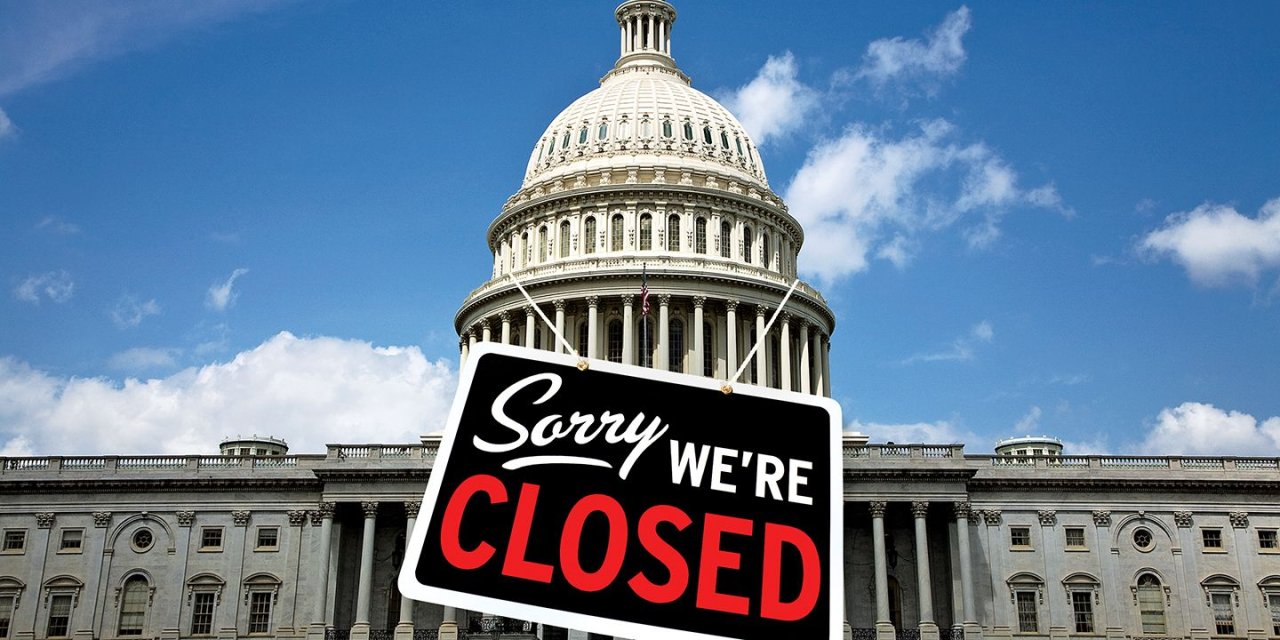Americans elected Donald Trump in 2016 on his pledge to "drain the swamp." Two years later, they turned to Democrats to demand what Nancy Pelosi called "a new dawn."
But fixing Washington requires more than new leaders and new variations on partisan orthodoxies. It requires a new governing vision, propelled by public demand, for a basic overhaul of how government works. Reforming the current system will not be sufficient.
Modern government is disconnected from the needs and capabilities of real people. Instead of honoring what Karol Wojtyla, later to become Pope John Paul II, called "the fundamental uniqueness of each human person," it dictates uniform public choices at a granular level, applying to all people. The relevant question in public interactions is not what a person needs or believes but what the rule requires.
The detail of American regulation is overwhelming, serving no public purpose other than the quest for complete uniformity even in small choices. It far exceeds any conception of human scale. No one, certainly not citizens and small businesses, can keep all this regulation straight.
In 2017, Steve Eder provided in The New York Times a snapshot of how one family-owned apple orchard, Indian Ladder Farms in upstate New York, must comply with about 5,000 rules from 17 different regulatory programs dealing with orchards. Some of these regulations are astonishingly impractical—such as a requirement to walk around the orchard every morning to check for mouse and deer droppings. Another food safety rule requires that the cart filled with picked apples must be covered with a cloth for the trip to the barn (a journey of a few minutes) to protect against droppings from a bird flying by. The apples have been exposed to the birds for five months while growing on the tree, so it's unclear what purpose is being served.
Indian Ladder Farms has never had a serious regulatory violation, but that doesn't prevent inspectors from different agencies from swooping in from time to time and demanding reams of paperwork and issuing sanctions for foot faults. The regulators think they're just doing their job. Most people see it as piling on.
Governing by uniform rules has spawned a public culture where officials, conditioned always to look to law, feel disempowered from doing what they know is right. Governing today is as thoughtful as airport security screening—where we trudge through lines and dedicate time and resources to comply with rigid requirements and then are pulled aside to be searched if, say, we left a nickel in our pocket. We resent the bureaucrats who conduct these regulatory searches, but they're not allowed to use their judgment either.
Mindless application of law commonly skews choices away from what people know is right. In 2016, two volunteer firefighters in Stafford, Virginia, responded to an emergency call at a McDonald's, where an 18-month-old child was turning blue from a seizure. They immediately put her in the firetruck and took her to the hospital, administering oxygen along the way; they got there within 13 minutes of the original call. The county's reaction to the firemen saving the child's life was to suspend them from further volunteer duty. The disciplinary logic was that the volunteer firefighters acted illegally because the firetruck was certified only as a "non-transport unit" and lacked "proper restraints" for carrying victims.
Not all public safety officers are heroes, of course, and good government is impossible unless officials can make judgments about accountability. But here as well the rules prevent officials from doing what's right. As a result of the Black Lives Matter movement, Reuters compiled a report on police officers with records of repeatedly abusing innocent people. One officer brutally beat up a college student who was sitting on a bench with friends for the alleged crime of drinking a beer in public. That officer had been the subject of 40 complaint allegations of misconduct.
But most bad officers, Reuters found, could not be dismissed. Why? The rule in some public union contracts requires that prior complaints and infractions be expunged from the record, in some jurisdictions after six months, so it's almost impossible for supervisors to terminate repeat offenders. No conceivable public purpose is served by whitewashing the record of abusive officers. But that's the rule.
American government is failing for the same reason it has estranged its citizens: It pre-empts the active intelligence and moral judgments of people on the ground. At this point, legal justification has become an obsession within our public culture, consistently making smart people act as if they're brain dead.
In the spring of 2018, the Trump administration announced a "zero tolerance" policy for immigrants crossing the border illegally. Several thousand people were put in jail immediately when caught and separated from their children, including infants, who were put in shelters. "We don't want to separate families, but we don't want families to come to the border illegally," then–Attorney General Jeff Sessions said. "This is just the way the world works." Columnist George Will ridiculed the administration for "an absence of judgment, institutionalized." Which is worse from a moral standpoint—entering a country illegally or separating young children from their parents?
Concerned about the fate of the separated children, the president of the American Academy of Pediatrics, Dr. Colleen Kraft, visited a detention center with 60 children in Texas. There she saw caregivers doing their best to try to care for the children. As The Washington Post put it, Kraft observed "a little girl no older than 2, screaming and pounding her fists on a mat." But the caregiver was also frustrated "because as much as she wanted to console the little girl, she couldn't touch, hold or pick her up to let her know everything would be all right." That was the rule: "They're not allowed to touch the children." The human instinct for caring and sympathy was pulverized by law.
How did American government get to the point where practicality and morality are no longer relevant—where regulations are so dense that people can't understand them; where firemen who save lives are fired and abusive policemen are protected; where our national leaders lose sight of basic morality in the name of legal zero tolerance? The public uproar over separating families from their children eventually caused the Trump administration to back down. But no one has changed the rule that bans picking up a crying toddler.
The function and place of individuals in American public life, in one sense, could hardly be clearer: What you believe doesn't matter. What the official believes doesn't matter either.
American government is suffering from a failure of philosophy, not merely bad leadership. Governing requires human judgment, not rote compliance. America needs a governing philosophy that gives responsibility, and meaning, back to each citizen and each official. Law should set goals and principles and leave implementation to people on the ground.
From Try Common Sense: Replacing the Failed Ideologies of Right and Left, published by W. W. Norton & Co.















